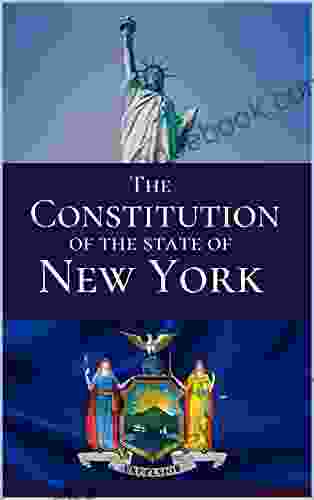A Paradigm Shift in Education: The New Model for Teacher Growth and Student Achievement

In the ever-evolving landscape of education, the pursuit of enhancing teacher effectiveness and fostering student achievement remains at the forefront of pedagogical discourse. Recognizing the inextricable link between teacher quality and student outcomes, educational stakeholders have embarked on a quest to redefine the traditional teacher evaluation paradigm. This article presents a comprehensive exploration of a groundbreaking model that redefines the role of teacher growth and its impact on student achievement.
The Traditional Teacher Evaluation Model: Limitations Exposed
Traditional teacher evaluation systems have often relied heavily on summative assessments, such as standardized test scores and classroom observations, to measure teacher effectiveness. While these measures provide a snapshot of teacher performance, they fail to capture the complexities of the teaching profession and offer limited guidance for improvement.
4.6 out of 5
| Language | : | English |
| File size | : | 5102 KB |
| Text-to-Speech | : | Enabled |
| Screen Reader | : | Supported |
| Enhanced typesetting | : | Enabled |
| Word Wise | : | Enabled |
| Print length | : | 192 pages |
A critical limitation of traditional models is their focus on individual teacher accountability, which can lead to a culture of fear and blame rather than collaboration and professional development. Consequently, teachers may become hesitant to experiment with innovative approaches that could potentially enhance student learning.
Reimagining Teacher Evaluation: The Growth Model
In response to the shortcomings of traditional models, the growth model emerged as a transformative approach to teacher evaluation. This model places an emphasis on continuous performance improvement and teacher agency.
Under the growth model, teachers are evaluated on their ability to promote student learning rather than on their compliance with predetermined standards. Data-driven evidence is gathered through multiple methods, including student assessments, classroom observations, and student feedback. This data is then used to identify areas for growth and to develop personalized professional development plans for each teacher.
Key Components of the Growth Model
Multiple Measures of Teacher Effectiveness: The growth model relies on a comprehensive range of measures to assess teacher effectiveness, recognizing the multifaceted nature of teaching. These measures may include:
- Student achievement data (e.g., standardized test scores, classroom assessments)
- Classroom observations conducted by trained evaluators
- Student feedback
- Teacher self-reflection
Emphasis on Professional Development: The growth model prioritizes professional development as a cornerstone for teacher growth. Teachers are provided with opportunities to engage in collaborative learning, mentorship, and research-based practices. This focus on continuous improvement fosters a culture of growth and innovation within the teaching profession.
Personalized Growth Plans: Data from multiple measures of teacher effectiveness is used to develop personalized growth plans for each teacher. These plans identify specific areas for improvement and outline a roadmap for ongoing professional development. This individualized approach ensures that teachers receive tailored support to enhance their practice.
Continuous Feedback and Support: The growth model emphasizes ongoing feedback and support for teachers throughout their professional journey. Evaluators provide regular feedback, guidance, and coaching to assist teachers in their continuous growth and improvement. This sustained support fosters a collaborative relationship between teachers and evaluators.
Benefits of the Growth Model
Improved Teacher Effectiveness: The growth model's focus on continuous improvement and professional development leads to increased teacher effectiveness. Teachers become more knowledgeable, skilled, and confident in their practice, resulting in enhanced student learning outcomes.
Enhanced Student Achievement: By empowering teachers with the necessary tools and support for growth, the growth model ultimately benefits students. Teachers are better equipped to create engaging and effective learning experiences that foster students' academic and personal growth.
Increased Teacher Retention: The growth model's focus on collaboration and support creates a positive and supportive work environment for teachers. This, in turn, contributes to increased teacher retention, ensuring the stability and continuity of the teaching workforce.
Positive School Culture: The growth model promotes a culture of continuous improvement and innovation within schools. Teachers feel empowered to take risks and try new approaches, knowing that their efforts are recognized and supported. This fosters a positive school culture that benefits both teachers and students.
Challenges and Considerations
Data Collection and Analysis: The growth model requires the collection and analysis of multiple measures of teacher effectiveness. This can be time-consuming and resource-intensive, particularly in large school districts.
High-Quality Professional Development: The effectiveness of the growth model depends on the availability of high-quality professional development opportunities for teachers. Ensuring that teachers have access to meaningful and relevant professional development can be a challenge.
Evaluators' Training and Support: Evaluators play a critical role in the growth model, providing feedback, guidance, and coaching to teachers. It is essential that evaluators are properly trained and supported to effectively fulfill their responsibilities.
The New Model for Teacher Growth and Student Achievement represents a groundbreaking shift in the evaluation of teaching effectiveness. By emphasizing continuous improvement, personalized professional development, and meaningful collaboration, this model empowers teachers to reach their full potential as educators. As a result, students benefit from enhanced instruction, leading to improved academic outcomes and a lifelong love of learning. Educators, policymakers, and school leaders must embrace the growth model and work together to create a supportive and empowering learning environment for all students and teachers.
4.6 out of 5
| Language | : | English |
| File size | : | 5102 KB |
| Text-to-Speech | : | Enabled |
| Screen Reader | : | Supported |
| Enhanced typesetting | : | Enabled |
| Word Wise | : | Enabled |
| Print length | : | 192 pages |
Do you want to contribute by writing guest posts on this blog?
Please contact us and send us a resume of previous articles that you have written.
 Novel
Novel Page
Page Chapter
Chapter Text
Text Genre
Genre Paperback
Paperback E-book
E-book Paragraph
Paragraph Sentence
Sentence Bookmark
Bookmark Shelf
Shelf Preface
Preface Annotation
Annotation Scroll
Scroll Bestseller
Bestseller Library card
Library card Biography
Biography Autobiography
Autobiography Memoir
Memoir Reference
Reference Encyclopedia
Encyclopedia Dictionary
Dictionary Narrator
Narrator Librarian
Librarian Card Catalog
Card Catalog Stacks
Stacks Archives
Archives Periodicals
Periodicals Lending
Lending Reserve
Reserve Journals
Journals Reading Room
Reading Room Rare Books
Rare Books Special Collections
Special Collections Interlibrary
Interlibrary Literacy
Literacy Dissertation
Dissertation Reading List
Reading List Theory
Theory Textbooks
Textbooks Sam Mahon
Sam Mahon Christa Craven
Christa Craven Jeff Pelletier
Jeff Pelletier Dan Smith
Dan Smith Joshua C Kendall
Joshua C Kendall Ulbe Bosma
Ulbe Bosma Eli Boschetto
Eli Boschetto Nelson Valente
Nelson Valente Soseh Yekanians
Soseh Yekanians Alex Ogg
Alex Ogg Katherine Kirkpatrick
Katherine Kirkpatrick Cyrus Parsa
Cyrus Parsa Ian Lendler
Ian Lendler Brain School
Brain School Alastair Walker
Alastair Walker Gavin Reid
Gavin Reid Janet Evanovich
Janet Evanovich Emery Leeann
Emery Leeann Olivier Blanchard
Olivier Blanchard Brian Kane
Brian Kane
Light bulbAdvertise smarter! Our strategic ad space ensures maximum exposure. Reserve your spot today!

 Brent FosterShavings: A Novel by Joseph Crosby Lincoln - An Enduring Tale of Love, Loss,...
Brent FosterShavings: A Novel by Joseph Crosby Lincoln - An Enduring Tale of Love, Loss,... Brent FosterFollow ·2.1k
Brent FosterFollow ·2.1k Nathaniel PowellFollow ·15.4k
Nathaniel PowellFollow ·15.4k Tyrone PowellFollow ·4.2k
Tyrone PowellFollow ·4.2k Gavin MitchellFollow ·19.5k
Gavin MitchellFollow ·19.5k Ervin BellFollow ·10.1k
Ervin BellFollow ·10.1k Ernest J. GainesFollow ·5.7k
Ernest J. GainesFollow ·5.7k Lawrence BellFollow ·4k
Lawrence BellFollow ·4k Jeff FosterFollow ·7.4k
Jeff FosterFollow ·7.4k

 Amir Simmons
Amir SimmonsMore Zeal Than Discretion: A Closer Look at the Risks and...
Enthusiasm is often seen as a positive...

 Wayne Carter
Wayne CarterYear of the Dog: American Poets Continuum 178
Year of the Dog is a...

 David Foster Wallace
David Foster WallaceThe Constitution of the State of New York: A...
The Constitution of the...

 Harvey Bell
Harvey BellSmall Cetaceans of Japan: Exploitation and Biology
Small cetaceans, including...

 Blake Bell
Blake BellEffortless Elegance: A Comprehensive Guide to Captivating...
In the realm of crocheting,...
4.6 out of 5
| Language | : | English |
| File size | : | 5102 KB |
| Text-to-Speech | : | Enabled |
| Screen Reader | : | Supported |
| Enhanced typesetting | : | Enabled |
| Word Wise | : | Enabled |
| Print length | : | 192 pages |












